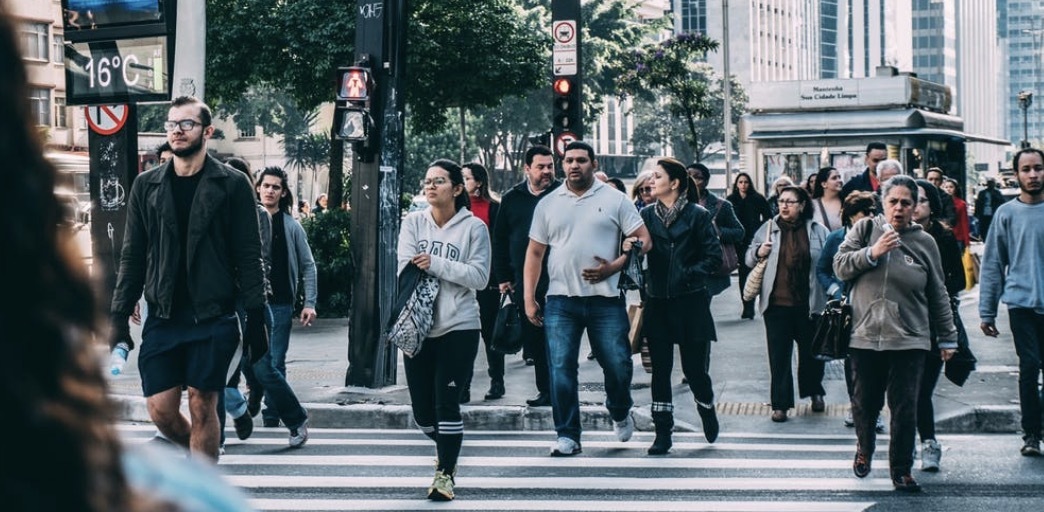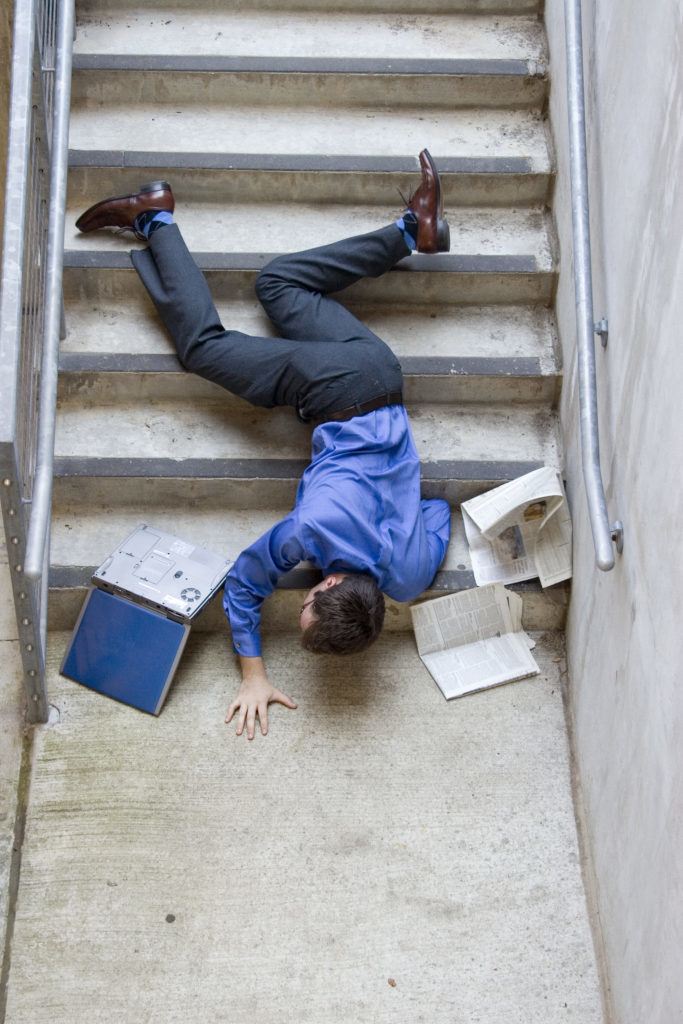Falls on Public Property: Hidden Pitfalls Under the Tort Immunity Act You Should Be Aware Of
There is a special law in Illinois (and in most States) that protects Cities from liability in injury cases involved falls on City property.
It is called the Local Governmental and Governmental Employees Tort Immunity Act. But lawyers just call it The Tort Immunity Act.
The Tort Immunity Act provides:
Except as otherwise provided in this Article, a local public entity has the duty to exercise ordinary care to maintain its property in a reasonably safe condition for the use in the exercise of ordinary care of people whom the entity intended and permitted to use the property in a manner in which and at such times as it was reasonably foreseeable that it would be used, and shall not be liable for injury unless it is proven that it has actual or constructive notice of the existence of such a condition that is not reasonably safe in reasonably adequate time prior to an injury to have taken measures to remedy or protect against such condition.
Are You 'Intended And Permitted' To Use The Property When You Fell?
This legal gobbledegook means that if you fall on public property (an alley, a city sidewalk, a street, a curb, a parkway), the Court will look at whether you were intended and permitted to use the property as you were using it. If you are not seens as an intended and permitted user of the area, then the Court will throw out your case.
For example, if you are walking in the street next to the curb, the Court will say that you are not intedned to use that area unless you are getting in and out of your car. The Court can dismiss your case. This is special protection other people do not get.
Another one that surprises people is that falls in alleys may not be covered. Using an alley as a sidewalk to access other sidewalks or as a 'shortcut' can mean the end of your falls on City property case. But, if you were walking in the alley to get in or out of your garage or throwing garbage away, you may have a case.
As you can see if you get hurt on City property, these extra wrinkles can make a case tough. You should get a free consultation with a lawyer familiar with both fall-down cases as well as cases against the City.
Free Consultation. Call Any Time - Night or Day.
Special Protection
Keep in mind that this is the only special protection that Cities like the City of Chicago get when being sued when someone falls on public property. Private Defendants, like a home owner or a store owner, do not get this kind of protection. incidentally, talking to a fall-down lawyer is a good idea, because one of the things we can do for you is to make sure who officially owns the property.
So here is a summary of various situations when the Court usually decides that a person who fell down and got hurt was an ‘intended and permitted user’ under the Tort Immunity Act.
Parkways: Parkways are the grassy area of a street after the sidewalk but before you get to the curb and the street. Generally, it is foreseeable that private citizens will have occasion to step off of the sidewalk and step onto the parkway, and therefore, encounter a defect or problem that usually causes a fall or other kind of fall down injury, like a broken ankle. The thing to watch out for here is that the Courts seem to want to know WHY you were on the parkway. For example, a minor can be expected to walk on the parkway. Walking to your car on the parkway when you fell is another explanation. Avoiding a muddy sidewalk, or stepping aside to let a large group of people pass on the sidewalk is good, too. Maybe you were walking your dog and you had to step onto the parkway to pick up the dog’s droppings. Any of these are the sorts of things that the Court wants to know in a case involving falls on City property.
If you have some reasonable explanation for why you stepped onto the parkway and fell, rather than using the sidewalk, then your case will probably be okay and will not be dismissed.
Alley: Alleys are generally NOT intended for pedestrian foot traffic, believe it or not. I was surprised to discover this since we all know that people walk in alleys all the time. But if you were taking a shortcut through an alley and your foot got caught and you tripped and fell in the middle of an alley, you may be out of the luck, since the Court is likely to say that since you were not an ‘intended and permitted user”, then you cannot maintain a lawsuit.
An important exception is if your city requires you to place your garbage cans on public property for the city to remove your garbage (like it is required in Chicago). And you encountered the problems while, say, throwing away your garbage, then you have a pretty good argument and the Court might allow you to keep your case going.
Street: Walking in the street is a no-no if you want to have an injury case. Basically, the Court says that streets are designed for vehicular traffic and not people walking (i.e., pedestrians), and therefore, you aren’t an intended and permitted user.
Of course, like so much of the law, there are exceptions. For example, if your car is legally parked, and you are walking onto the street only to get into your case, you might be able to win that case, as long as you are going to your car and your car is parked on the same side of the street as you are on. You cannot cross the street in the middle of the block, because if you do? You guessed it: you aren’t an intended and permitted user of the street.
Another exception is if you are crossing the street within a marked crosswalk. Then, the City would have a pretty hard time saying that you aren’t allowed to access the street in a marked crosswalk since they are the ones who designated the area for street crossing.

Falls On Recreational Property
Recreational Property: Recreational property refers to parks and places like that; places that are maintained specifically for recreation. It is very, very tough to sue for a fall on public property if it is recreational property.
Section 3-106 of the Tort Immunity Act says:
Neither a local public entity nor a public employee is liable for an injury where the liability is based on the existence of a condition of any public property intended or permitted to be used for recreational purposes, including but not limited to parks, playgrounds, open areas, buildings or other enclosed recreational facilities, unless such local entity or public employee is guilty of willful and wanton conduct proximately causing such injury.
If you fell on a recreational property, you cannot sue the City for negligence. A municipality is immune from liability for injuries occurring on the municipally owned recreational property unless the municipality or its employee is found guilty of willful and wanton conduct.
Willful and wanton conduct is an action that shows a conscious disregard for the safety of others or actual knowledge that their actions will result in hurting someone. It is very hard to prove. You need extremely strong evidence to have any shot at winning a case like this.
Hurt on City Property? Protect Your Rights with the Right Legal Help
Navigating a fall injury claim on city property can be complicated, especially with the additional protections cities enjoy under the Tort Immunity Act. Whether you were injured on a sidewalk, in an alley, or on recreational property, understanding your rights and the legal nuances is crucial to building a strong case.
At the Law Office of Scott D. DeSalvo, we specialize in cases involving falls on public property. From analyzing whether you were an intended and permitted user to ensuring the responsible party is identified, we guide you through the complexities to secure the compensation you deserve.
Contact us today for a free consultation. Don’t let the legal hurdles of the Tort Immunity Act stop you from seeking justice. Let us fight for your rights and help you move forward with confidence. Call now!
Why not get a free consultation?
Here how it goes:
- You call for free (or I can call you).
- I listen to your story.
- I answer your questions & concerns.
- I tell you my plan.
- You can hire me or not hire me, your choice.
- Either way, we end up as friends.
Sound good?
I look forward to hearing from you and your falls on City property and what I can do to help.



